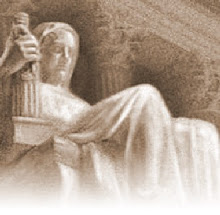WASHINGTON (AP) -- President Barack Obama's relief at the agreement that could quiet the political crisis over Afghanistan's spoiled election masks his predicament as he weighs an expansion of the unpopular Afghanistan war.
The administration says its ambitious plans for Afghanistan rely on a "credible partner" in Kabul. But there is no guarantee that the hastily arranged voting will confer the legitimacy the fraudulent Aug. 20 election lacked.
No matter who wins the November election runoff that Afghanistan President Hamid Karzai agreed to during pressured consultations with American leaders, the United States is wedded to a shaky government in which corruption has become second nature.
"This has been a very difficult time in Afghanistan to not only carry out an election under difficult circumstances, where there were a whole host of security issues that had to be resolved, but also postelection a lot of uncertainty," Obama said Tuesday.
Obama pointed to the Nov. 7 runoff as "a path forward in order to complete this election process." He said nothing about his deliberations over what could be a huge surge of U.S. armed forces in Afghanistan, a calculation badly thrown off by the botched August voting.
For the U.S., a runoff emerged as perhaps the least bad option to restore momentum and the important perception that Afghans themselves are invested in their government and its success. Karzai's chief political rival, Abdullah Abdullah, agreed Wednesday to participate in the run-off.
"You have to learn from mistakes, and everybody needs to do that here," said Sen. John Kerry, D-Mass., who stood with Karzai for an awkward announcement of the run! off plan . He said Afghan officials and international election shepherds must work fast to get standards and plans that all agree on.
Another election risks the same fraud that derailed the Aug. 20 vote, and the same risk of inciting violence and increasing ethnic divisions.
If there are any more delays, the vote could also could be hampered by winter snows that block off much of the north of the country starting mid-November.
U.N. Secretary-General Ban Ki-moon issued a warning to Afghan election officials.
"We will advise the Independent Election Commission not to re-recruit those officials who might have been involved in fraudulent electoral processes," Ban said. "And we will ensure to make all administrative and technical (measures) to ensure that this election will be carried out in a most fair and transparent manner."
Having pushed for a do-over, U.S. officials have even less ability to scold the winner. That winner is likely to be incumbent Karzai, who conceded Tuesday, under heavy international pressure, that a runoff was "legitimate, legal and according to the constitution of Afghanistan."
The Afghan leader did not express any regret over fraud that led U.N.-backed auditors to strip him of nearly a third of his votes.
"This is not the right time to discuss investigations, this is the time to move forward toward stability and national unity," Karzai said at a joint appearance with U.S. and U.N. go-betweens.
The Obama administration has kept an obvious distance from Karzai, a silver-tongued charmer whom the Bush administration had considered a successful protege despite mounting claims of incompetence and corruption.
Kerry leaned hard on Karzai over several days to concede that he did not win in the first round. The two men took a long, dramatic walk Tuesday before an uncharact! eristica lly grim Karzai came to the microphones.
Kerry spoke to The Associated Press en route home from Kabul on Tuesday and said Karzai had worried aloud about the direction of his relationship with the United States.
"He came to the conclusion that Afghanistan's interests and his interests coincided in making sure there was a legitimately accepted government and that he needed to take this step in order to restore that," Kerry said.
Although Karzai was favored to win all along, Obama's advisers thought they could forge a workable partnership that would be the building block for a new war strategy emphasizing the security and welfare of ordinary Afghans.
The strategy, which military officials quickly assumed would mean an infusion of thousands of additional U.S. troops and a larger expansion of Afghanistan's own armed forces, frayed when the expensive, carefully monitored election went bad.
Defense Secretary Robert Gates sounded pessimistic when asked about the runoff at a Tokyo news conference Wednesday.
"I think we need to be realistic that the issues of corruption and governance that we are trying to work with the Afghan government on are not going to be solved simply on the outcome of the presidential election," he said.
White House press secretary Robert Gibbs said Obama has not decided whether to move ahead with a revamped strategy, and the prospect of more troops, before results of the runoff are known. Gibbs told reporters he still expects that decision within weeks.
The Taliban will surely try to disrupt the voting again, and turnout is expected to be low in areas where voters were intimidated.
"Another election where there's no credible government to operate with continues to undermine our reason for being there," said Richard "Ozzie" Nelson, a former White House countert! errorism expert now at the Center for Strategic and International Studies. "It would push us further down the slippery slope of what to do next."
---
Associated Press writer Andrew Miga contributed to this report.
---
EDITOR'S NOTE - Anne Gearan has covered U.S. national security issues for The Associated Press since 2004.


0 comments